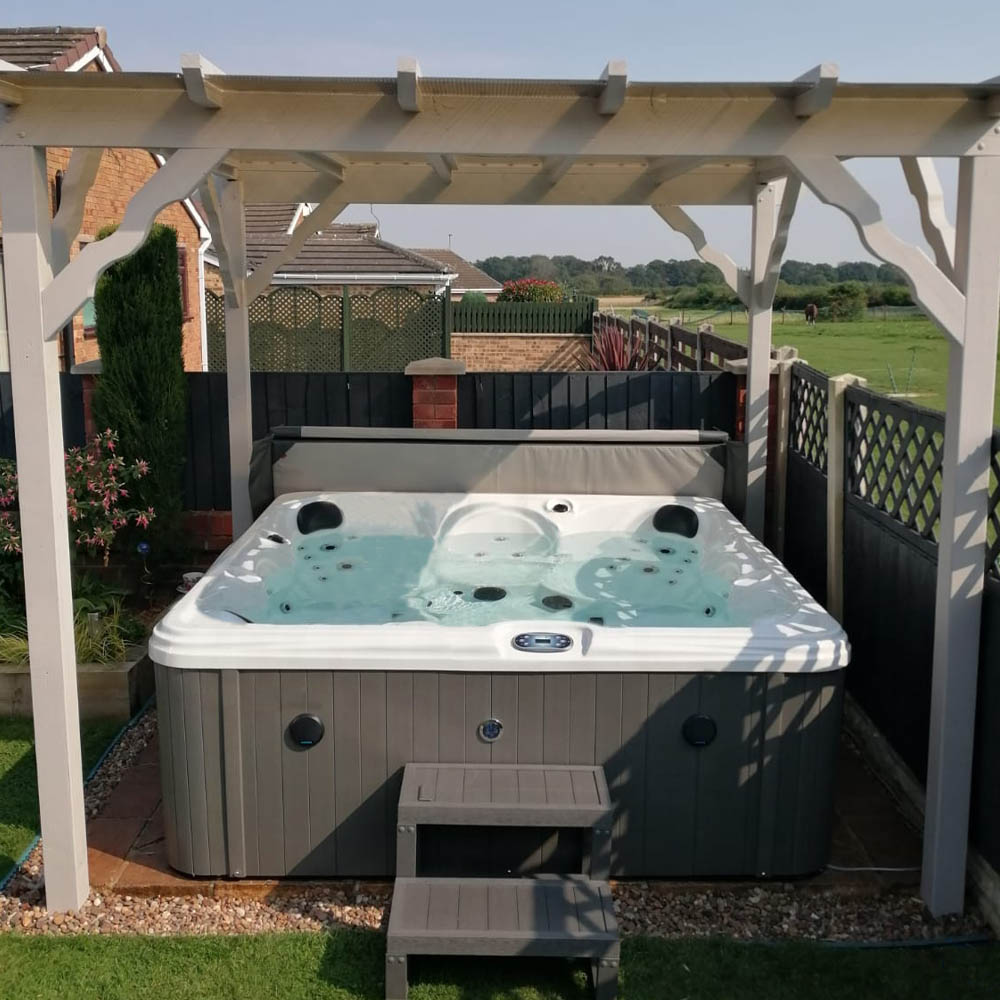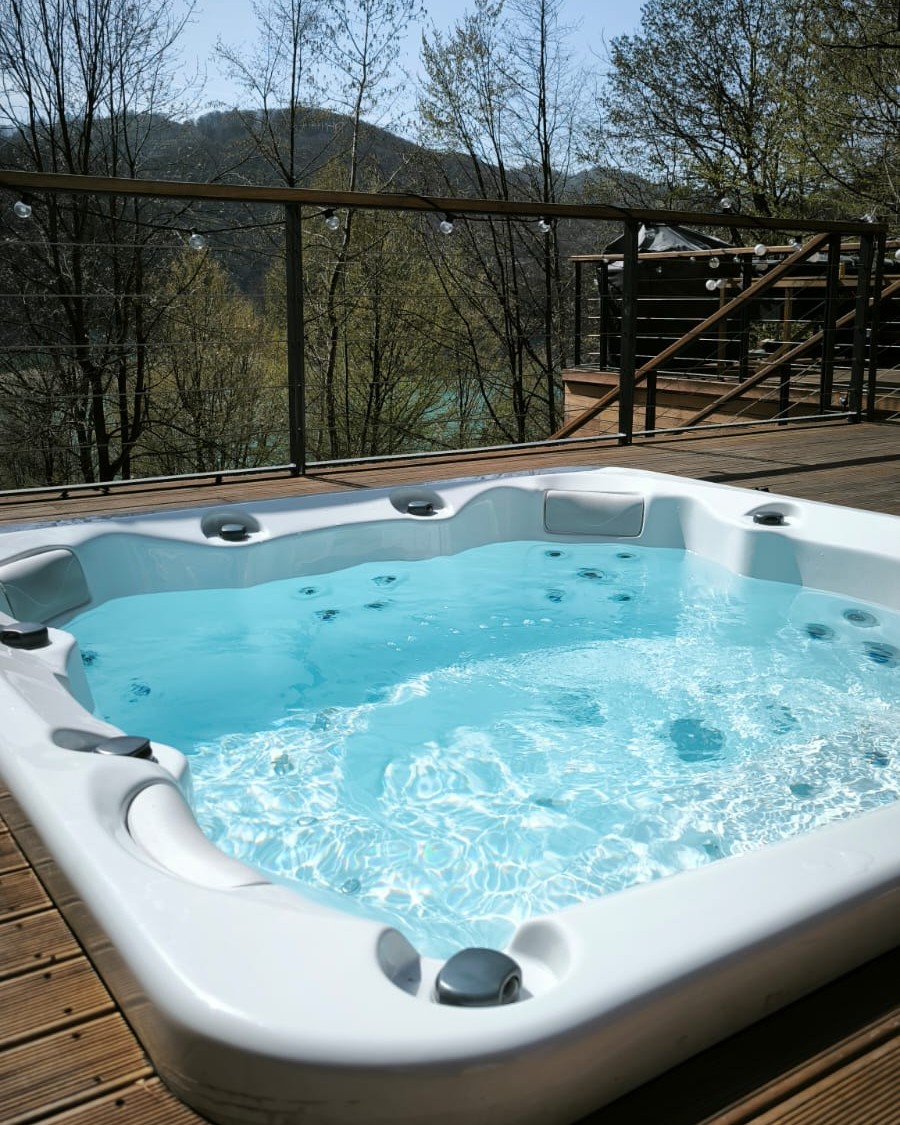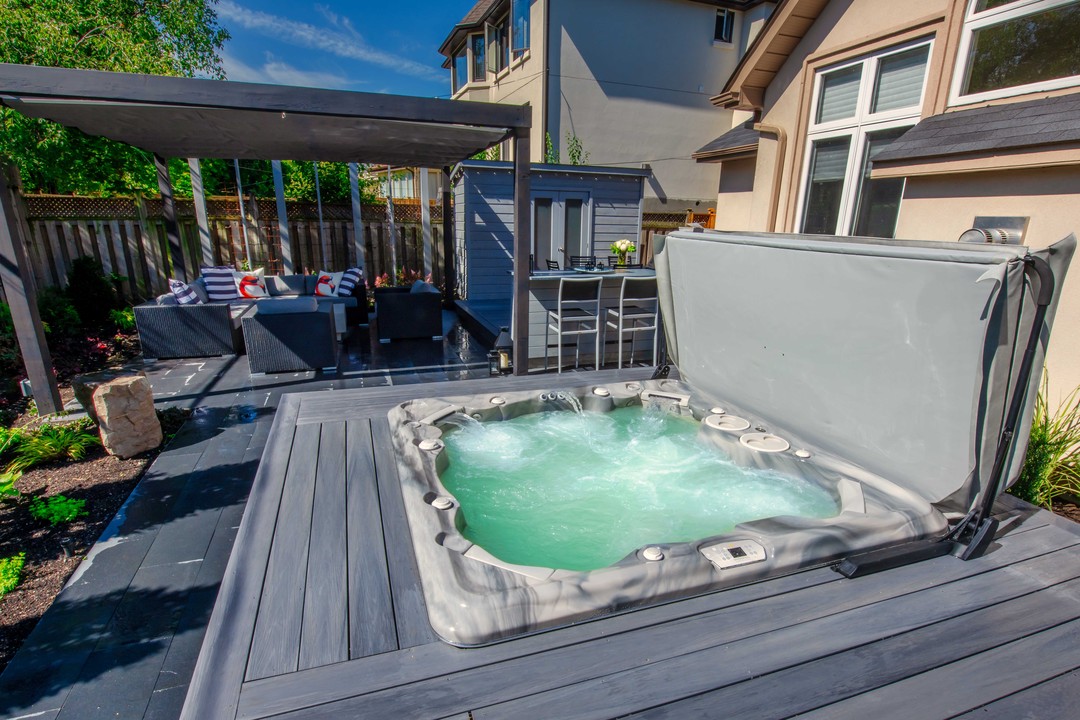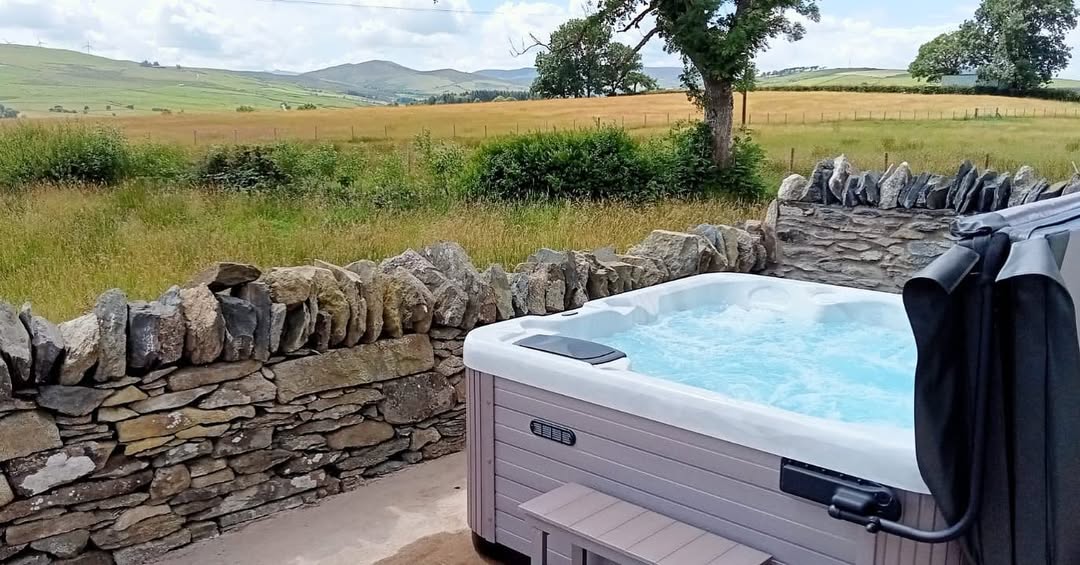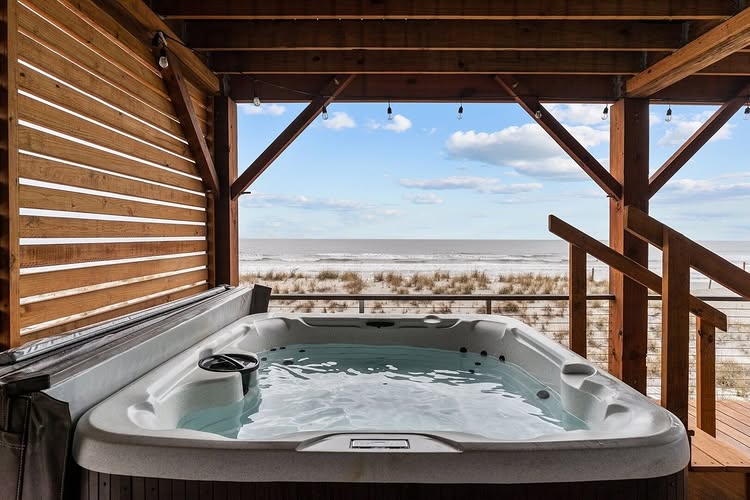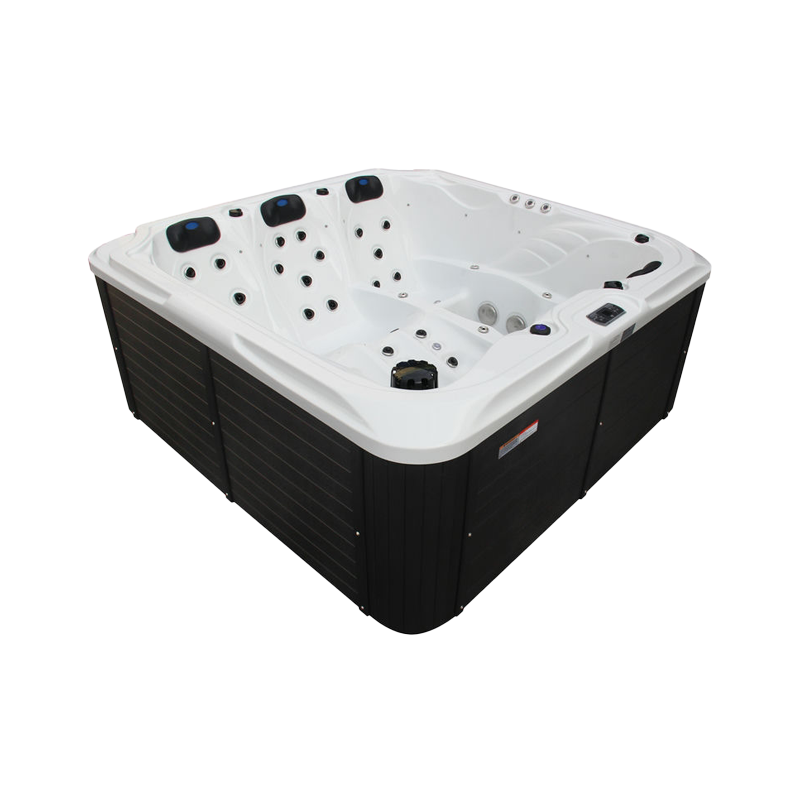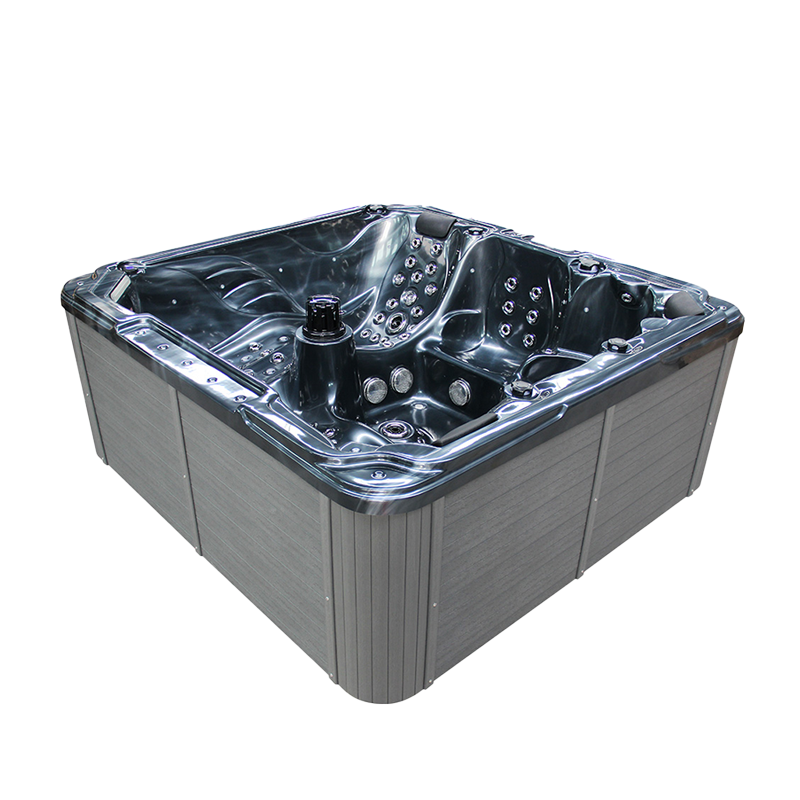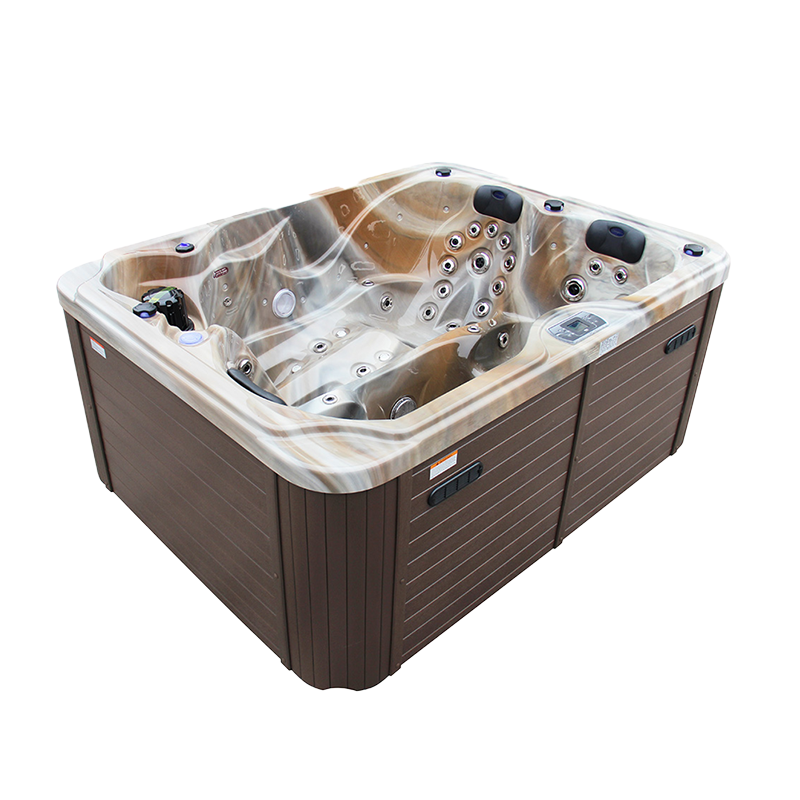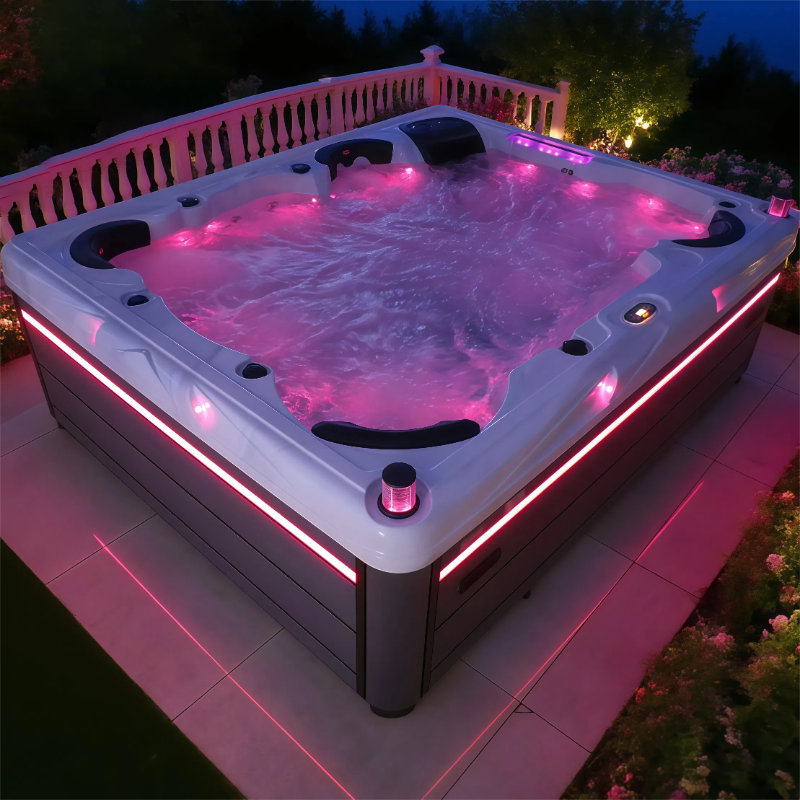Deciding whether to buy a hot tub is a big decision that involves not just a financial investment, but also careful consideration of your lifestyle and long-term commitment. While the thought of soaking in hot, bubbling water after a long day is undeniably appealing, it’s important to weigh both the advantages and potential drawbacks before making this investment.
Owning a hot tub comes with numerous benefits, from physical and mental health improvements to providing a place for relaxation. However, like any major purchase, there are also some downsides to consider. In this article, we’ll dive deep into the pros and cons of owning a hot tub. By the end, you’ll be well-equipped to make an informed decision. We’ll cover everything from cost factors and maintenance to health risks and potential safety issues. Additionally, we’ll provide some expert tips to help you make the most of your investment. Let’s explore the full picture.
The Benefits of Owning a Hot Tub
1. Alleviates Pain and Discomfort
One of the most celebrated advantages of owning a hot tub is its ability to help relieve physical pain and discomfort. The combination of heat and water pressure can work wonders on tense muscles and stiff joints. When you soak in warm water, your body’s weight is effectively reduced by up to 90%, taking the pressure off your muscles and joints. This makes it easier for your body to relax and ease any discomfort you might be feeling.
In fact, hot tubs are widely used in hydrotherapy treatments for a variety of conditions, including arthritis, tendonitis, fibromyalgia, and back pain. The heat increases blood circulation, helping to reduce muscle tension and inflammation. Hydrotherapy can also promote faster healing of injuries, making hot tubs an excellent choice for those recovering from physical activities or injuries.
Furthermore, the jets in a hot tub provide a gentle massage that targets specific areas of discomfort. For conditions such as arthritis, a hot tub can offer temporary relief, reducing pain and improving mobility.
2. Reduces Stress and Anxiety
Stress is an unfortunate part of modern life, and finding ways to unwind is crucial for maintaining mental health. A hot tub is a perfect solution for those looking to reduce stress and anxiety. Immersing yourself in warm water helps relax your muscles and clear your mind, providing a sense of peace and tranquility.
Studies show that hydrotherapy significantly reduces anxiety by calming the central nervous system. This can be especially beneficial for individuals suffering from anxiety disorders or chronic stress. Soaking in a hot tub stimulates the release of endorphins, the body’s natural “feel-good” hormones, which help boost your mood and promote relaxation. Additionally, the soothing effects of hot water can help lower cortisol levels, which are responsible for stress and anxiety.
Regular hot tub use has been shown to improve mental clarity and focus, leaving you feeling rejuvenated and less overwhelmed by daily stressors.
3. Promotes Better Sleep
Another well-known benefit of owning a hot tub is its ability to improve sleep quality. Many people struggle with sleep disorders, including insomnia, which can have a negative impact on overall well-being. Soaking in a hot tub before bed can promote better sleep by relaxing your muscles and preparing your body for rest.
The heat from the water raises your body temperature, and as you exit the tub, your temperature naturally cools down. This cooling process signals to your body that it’s time to sleep, mimicking the body’s natural temperature fluctuations that occur when you fall asleep. The result is that you fall asleep more easily and enjoy a deeper, more restful night’s sleep.
If you struggle to get enough sleep, incorporating a hot tub session into your nighttime routine could significantly improve your sleep patterns.
4. Assists in Weight Loss
While a hot tub is not a substitute for regular exercise, it can play a role in supporting weight loss efforts. The heat in a hot tub increases your body’s core temperature, which leads to increased calorie burn. As your body works to cool down, it burns fat and uses energy to regulate your internal temperature.
The process of heating up and cooling down during a hot tub soak activates heat shock proteins (HSPs), which are responsible for helping your body burn fat and increase metabolism. Although the weight loss effects may not be dramatic, regular use of the hot tub in combination with a balanced diet and exercise regimen can support your fitness goals.
Hot tubs are also an excellent way to relax after a workout, speeding up recovery and reducing muscle soreness.
 5. Supports Relaxation and Recovery
5. Supports Relaxation and Recovery
Whether you’re recovering from an intense workout or simply need to unwind, a hot tub offers an ideal environment for relaxation. The warm water increases circulation, helping to reduce swelling and improve blood flow throughout the body. This enhanced circulation can assist in the recovery process, allowing your muscles and joints to heal faster.
Regular use of a hot tub can also help reduce stress on your cardiovascular system, promoting overall wellness. The relaxation provided by a hot tub helps the body heal naturally by flushing out toxins and improving oxygen flow to the muscles and organs. Whether you’re recovering from physical activity or simply need to relax, soaking in a hot tub can rejuvenate your body and mind.
6. Enhances Cardiovascular Health
Did you know that hot tubs can also have a positive impact on your cardiovascular health? Soaking in a hot tub mimics the effects of mild exercise by increasing your heart rate and improving circulation. The heat causes blood vessels to dilate, which enhances blood flow and reduces blood pressure. Over time, these effects can help improve heart health.
For individuals who cannot engage in regular physical exercise due to injury or illness, using a hot tub can provide a low-impact alternative to cardiovascular workouts. However, if you have any existing heart conditions or are pregnant, it’s essential to consult with a doctor before using a hot tub regularly.
The Drawbacks of Owning a Hot Tub
1. High Initial Cost
Hot tubs can be a significant financial investment. The cost of purchasing a hot tub varies depending on the type, size, and features, with prices ranging from a few thousand to tens of thousands of dollars. Custom-designed models, luxury spas, and advanced features such as built-in sound systems or LED lighting can drive up the price.
Beyond the purchase price, you must also consider the cost of installation, which can be an additional expense. You may need to modify your home or outdoor space to accommodate the hot tub, which can increase the overall investment. Additionally, many people opt for ongoing financing options to make the purchase more manageable, but it’s important to factor in these long-term costs.
2. Ongoing Maintenance Costs
Once you’ve invested in a hot tub, it requires ongoing maintenance to keep it in good working order. Regular cleaning, water testing, and the addition of chemicals are essential for maintaining water quality. You will also need to replace filters and perform occasional repairs.
While the maintenance routine is not particularly difficult, it can be time-consuming. Depending on how often you use your hot tub, you may find yourself spending a few hours each month keeping it in top condition. Additionally, you’ll need to purchase chemicals, cleaning supplies, and replacement parts, which can add up over time.
3. Increased Energy Consumption
Hot tubs are known for their energy consumption, especially when used frequently or in colder climates. Heating the water, running the jets, and ensuring proper filtration requires a substantial amount of electricity. Depending on how often you use the hot tub, your energy bills can increase significantly.
In colder climates, the cost of heating the water can be especially high, as the hot tub must work harder to maintain the desired temperature. To mitigate these costs, consider investing in energy-efficient models, which are designed to minimize power consumption. Additionally, using covers and adjusting your hot tub’s settings can help reduce energy costs.
4. Higher Water Usage
A hot tub requires a large volume of water to fill, and you will need to refill it periodically. In areas where water is scarce or expensive, this could significantly increase your utility bills. Even with water-saving features such as efficient filtration systems and covers, the amount of water used can still be a concern.
Draining and refilling the water every few months is also necessary for maintenance purposes, which can further add to your water consumption. Before buying a hot tub, consider how much water is available in your area and whether it will impact your overall costs.
5. Limited Usage Opportunities
Although a hot tub can provide year-round enjoyment, your ability to use it may be limited by your local climate or lifestyle. In colder regions, outdoor hot tubs may be difficult to use during harsh winters. Additionally, if you live in an area with extreme weather, the hot tub may sit unused for extended periods.
If you only plan to use your hot tub occasionally, the investment may not be worthwhile. You need to consider whether the enjoyment you’ll get out of the hot tub justifies the cost and upkeep.
6. Health and Safety Risks
There are several health and safety risks associated with hot tub ownership, which require careful consideration. For example:
- Skin Irritation: Hot tubs must be kept clean to prevent bacterial growth, as improper water treatment can lead to skin rashes and infections.
- Dehydration and Overheating: Prolonged exposure to hot water can cause dehydration and overheating. It’s essential to stay hydrated and limit the amount of time spent in the water.
- Slip and Fall Accidents: The wet surfaces around hot tubs can be slippery, increasing the risk of accidents, especially when exiting the tub.
Proper maintenance and awareness of safety guidelines can minimize these risks, but they should not be ignored when making your decision.
Additional Considerations Before Buying a Hot Tub
- Space and Installation Requirements: Ensure you have enough space to accommodate a hot tub, both indoors and outdoors. Installation may require modifications to your property, such as reinforcing flooring or installing electrical connections.
- Long-Term Commitment: Owning a hot tub is a long-term commitment, and it’s important to evaluate whether you’re willing to take on the maintenance and financial responsibilities.
FAQs
Q1: How often should I clean and maintain my hot tub?
A1: Regular maintenance is essential for ensuring the longevity of your hot tub. Clean your hot tub every 1-2 weeks, check the water chemistry, and replace filters as needed. It’s also important to drain and refill the water every 3-4 months to maintain water quality.
Q2: Can a hot tub help me lose weight?
A2: While using a hot tub can boost your metabolism by activating heat shock proteins, it should not be relied upon as a primary method of weight loss. Regular exercise and a healthy diet remain the most effective ways to achieve and maintain weight loss.
Q3: Can a hot tub help with sleep problems?
A3: Yes, soaking in a hot tub before bed can promote better sleep. The cooling effect after you exit the tub signals to your body that it’s time to rest, which can help you fall asleep faster and improve sleep quality.
Abschluss
Deciding whether to invest in a hot tub requires thoughtful consideration of both the benefits and potential drawbacks. From physical pain relief and improved sleep to maintenance costs and energy consumption, it’s essential to weigh all factors carefully. If you believe that the positive aspects of owning a hot tub align with your lifestyle and health goals, it could be a rewarding investment. However, if you’re concerned about the financial commitment, maintenance, or limited use, it may be worth exploring alternatives. By thoroughly evaluating your needs and options, you can make a decision that fits your budget and lifestyle.

